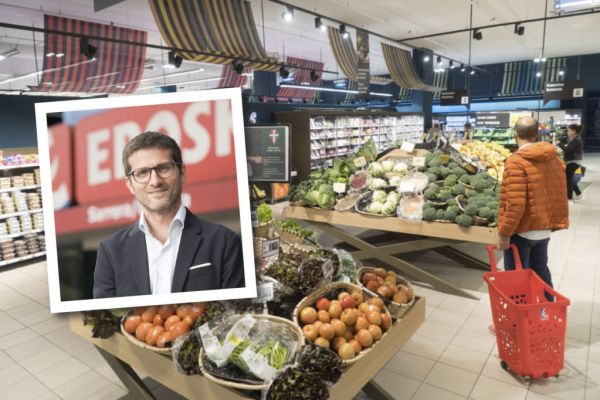For Bruno Dufayet, the latest round of trade talks between the European Union and the US could sound the death knell for France’s small cattle farms. "For a beef farmer in Europe now, the biggest threat is massive imports of US beef produced in feedlots," said Dufayet, who notes that his 50 beef-cattle farm in south-central France is typical for the country. "The end could be nigh for this type of livestock farm in France."
French farmers and lawmakers fear free-trade talks with the US will pit Europe’s small family operations against intensive American animal farming. Dufayet is a member of French meat lobby Interbev, which hosted senators and members of parliament at a meeting in Paris on Tuesday that finished over beef canapes and red Bordeaux wine. European farmers would be unable to compete with a "massive opening" of the region’s markets to US operations that handle thousands of animals at a time, the lobby said.
The 12th round of negotiations on the Transatlantic Trade Investment Partnership, or TTIP, starts in Brussels on February 22. The contents of any proposed deal are still to be discussed, and there will be no full liberalization for agricultural products, said Daniel Rosario, a spokesman for the European Commission. The trade concerns come as farmers across France, Europe’s largest agricultural producer, are protesting against plunging prices of everything from pork to milk.
Face-Off
The EU needs to protect its family-owned livestock farms based on extensive grazing and beef should be excluded from the talks, Jean-Paul Denanot, a member of the European Parliament and a substitute member on its agriculture committee, said at the Interbev meeting.
"This is a face-off between systems that have nothing in common," Jean-Pierre Fleury, who heads the beef working group at EU farm lobby Copa-Cogeca.
In addition to differences in scale, the EU tracks animals from birth, while U.S. traceability only applies to livestock moving interstate and exempts beef cattle under 18 months. While the EU banned antibiotics as growth promoters in animal feed in 2006, many US states still allow the routine use of the drugs to promote growth in cows, chickens and pigs. There’s also the argument of higher animal welfare standards in the EU than in the US, according to the US-based Humane Society International.
Opportunity to Compete
The US beef lobby doesn’t buy those arguments.
"We have heard that quite a bit before," said Colin Woodall, chief congressional lobbyist for the National Cattlemen’s Beef Association, the largest US rancher group. "Ultimately this is protectionist scare tactics intended to prevent any discussion of agriculture in the TTIP," he said in a phone interview from Washington DC.
"We would be happy to invite anyone over to see our systems first-hand, not only how we feed our cattle, but our rules and regulations," Woodall said.
With Europe’s biggest cattle herd, France’s livestock sector would be most affected by including beef in a free-trade agreement, said Sophie Primas, a French senator. Primas sits on a Senate study group for farming and food, and any deal "that sacrifices agriculture" would be rejected by the chamber, she said during the Interbev meeting.
France has about 19.3 million cattle, 22 per cent of the EU herd, according to Eurostat data. Beef output was 1.42 million tonnes in 2014, or 19 per cent of bovine meat produced in the 28-nation bloc.
US beef "is a product we’re proud of and it has a flavor that the Europeans would enjoy," Woodall said. "We just want the opportunity to compete."














